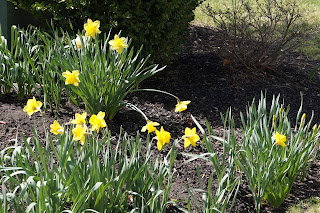Once popular in college writing classes was an essay on Red-bloods and Mollycoddles (Dickinson). This example of expository writing was used to illustrate comparison and contrast to structure an argument. It outlines supposed differences between these two types of people–namely, those who are prone to action and those who are "all inner life."
The essay sketches superficial differences of these invented types, with the back-to-back treatment of them moving at a pace that perhaps only a tough-minded skeptic might have paused to question the underlying assumptions. Additionally, when the essay was written more than a century ago, its use of sexist language was as much the norm as other myths sustained from earlier times. Remarkably, the essay was still published as an exemplar of argument in the later decades of the twentieth century.
At that time, also among the listed readings for the local high school English curriculum was a popular, semi-biographical novel titled My Brother Jack, written by the journalist, George Johnston. The novel poses challenges to perceptions on life and war, as well as to "pervasive assumptions about Australian character, values and suburban complacency" (Daley). The author presents a semi-autobiographical portrayal as a Mollycoddle, as he habitually ponders and prevaricates. His brother Jack rushes into just about everything, including fights, relationships, and war. Jack represents more of the Red-blood, the "man of action."
In both the essay and novel, readers are swept along by narratives based on myths of the time, wrapping together presuppositions about culture, beliefs, and priorities. With the distance of many decades, it's easy enough now to recognize the presuppositions. Less readily recognized might be how today's public communications strengthen myths and appeal to us.
But savvy propagandists are adept at incorporating myths in this way, in their public talk and social media, as well as through news reports that daily frame our thinking. Not so long ago, news reports were infiltrated with words like celebrity president, fake news, deep state, tremendous success, or many other examples advancing presuppositions to amplify propagandist myths. The media continuously insinuates news reports of current events with verbatim quotes of these words of propagandists.
Such verbal combinations are fabricated to design desired responses in us. The term semantic infiltration was coined by Fred Iklé to describe the use for which these words are designed:
Simply put, semantic infiltration is the process whereby we come to adopt the language of our adversaries in describing political reality (Washington Post).
A seriously enduring damage from the constant use of an ever-evolving firehose of these nonsense words is the ongoing attack on our free thought. Such use damages freedom of thought surprisingly quickly. And there's not much evidence, whether for the educated or not, the critically thinking person or not, that human beings are able to swim through a swill of propaganda without some severe impact on our thought processes. As Jacques Ellul warned, "to be effective, propaganda must constantly short-circuit all thought and decision" (Ellul, p. 27).
When we repeat such words in conversations, we assist the propagandist's efforts. And through our use, we implicitly encourage others to use the words also–at worst, we become megaphones for the propagandist's worldview to reach listeners, well beyond what the propagandist might accomplish unassisted.
Preoccupations with such nonsense words and the myths they help reinforce really mess with otherwise sensible academics, pundits, politicians, and the general population. However foolish we believe nonsense words are, their repetitive use focuses conversations, causing much damage. An immediate damage is to distract energy from what matters, by setting the agenda of public communication on the inanities of a propagandist. What's considered important is redefined, with policy or other efforts sucked away from addressing the real needs of people.
Can we outwit propagandists by:
1. Acknowledging that we're all much propagandized?
2. NOT using propagandist's words?
3. Keeping attention to what's good for fellow citizens?
Let's hope so. What's required is some purposeful decision from each of us.
References:
_______ (1978), "Distortions of Political Language," Washington Post, November 21, https://www.washingtonpost.com/archive/politics/1978/11/21/distortions-of-political-language/47d51dc5-cff4-4424-84ea-1931a216ab96/
Paul Daley (2014), "My Brother Jack at 50 - the novel of a man whose whole life led up to it," The Guardian, December 23, https://www.theguardian.com/books/australia-books-blog/2014/dec/23/my-brother-jack-at-50-the-novel-of-a-man-whose-whole-life-led-up-to-it

